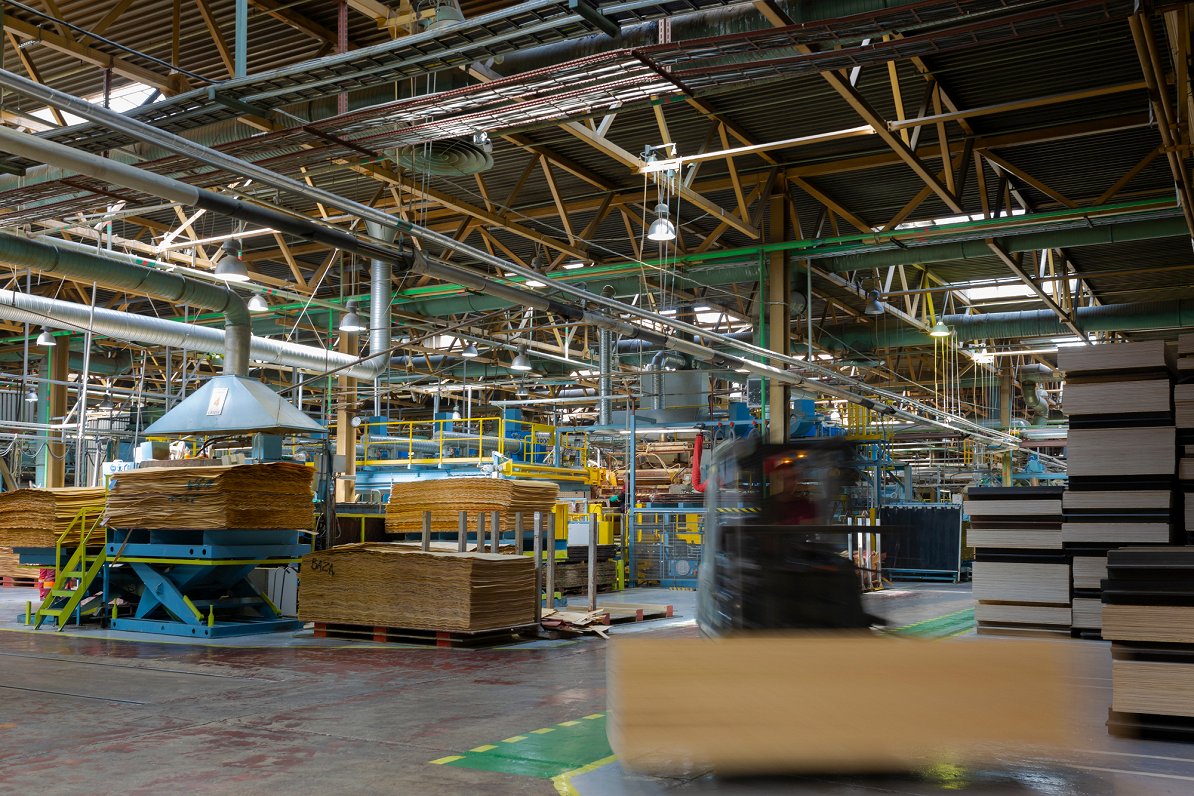However, total industrial production output decreased by 0.6%.
In February, out of a total of 22 manufacturing industries, in 15 industries an increase in output was registered, including manufacture of beverages by 53.5 %, manufacture of chemicals and chemical products by 25.1 %, manufacture of other non-metallic mineral products by 18.4 %, manufacture of electrical equipment by 11.2 % and manufacture of machinery and equipment n.e.c. by 6.1 %. Output also increased in the two of three largest sectors by share – manufacture of wood and wood products and manufacture of fabricated metal products, except machinery and equipment (by 2.4 % and 12.7 % respectively).
In contrast, the production volume decreased in manufacture of computer, electronic and optical products – by 24.4 %, repair and installation of machinery and equipment – by 14.4 %, as well as in the second largest manufacture sector by share – manufacture of food products – by 7.5 %.
In February 2022, compared to January 2022, manufacturing production output according to seasonally adjusted data at constant prices decreased by 2.1 %. Output increased by 2.1 % in mining and quarrying, but decreased by 3.2 % in electricity and gas supply. Total industrial production output decreased by 2.5%.
Turnover
In February 2022, compared to February 2021, manufacturing turnover according to calendar adjusted data at current prices increased by 22.6 %. Domestic market turnover grew by 18.1 % and exports by 24.5 % (including 36.5 % in the euro area and 16.3 % outside the euro area).
In February 2022, compared to January 2022, manufacturing production output according to seasonally adjusted data at constant prices decreased by 1.4 %. Domestic market turnover decreased by 0.7 % and in exports by 1.7 % (including by 1.4 % in the euro area, and by 1.9 % outside the euro area).
Commenting on the figures, the Ministry of Finance signalled that tougher times were likely ahead.
"It is expected that in the coming months, Latvian industry will feel the consequences of the sanctions imposed on Russia and Belarus more and more, as the import of the necessary raw materials from the aggressive countries decreases or stops. Russia and Belarus have significant market shares in raw materials in sectors such as wood, metalworking, pharmaceuticals, construction materials and electrical equipment, and more. At the same time, manufacturers will not only have to look for raw materials in other countries, but will also have to find new markets," the Ministry said.





























